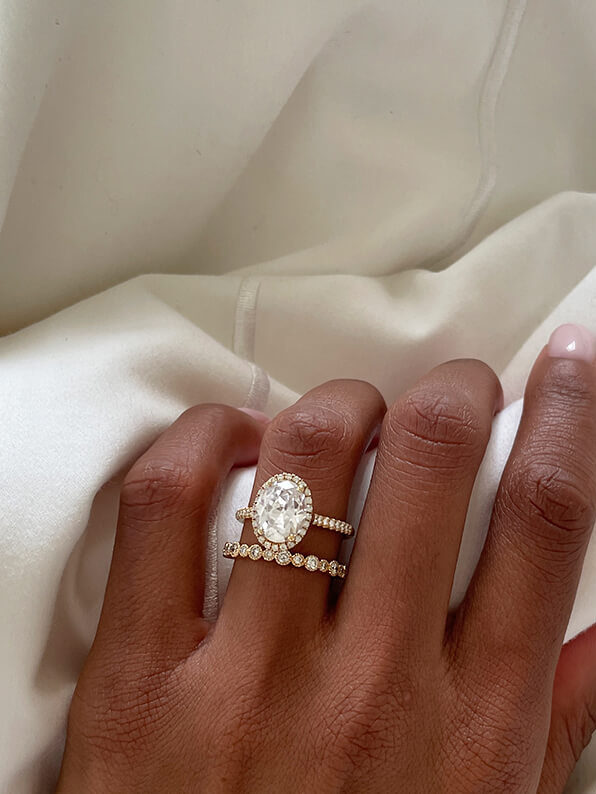
How To Offer A Genuine Apology (And Why You Should)
I recently caught my preschooler emptying her nearly untouched lunch box into the trash can.
“Sorry sorry sorry!” she shouted.
“Honey what happened?” I asked, pushing past my frustration and trying to practice curiosity, to give her the benefit of the doubt. Maybe she dropped her sandwich on the floor; maybe she’d accidentally spilled her milk on the freeze-dried strawberries and they were now a gloopy, disintegrating mess. I opened the trash lid and looked down at a seemingly pristine sunbutter sandwich, surrounded by a confetti of strawberries.
“Why did you throw your lunch in the garbage?” I asked, a little more sharply.
My daughter looked at me, her tiny face screwing up in fury and disbelief. She threw out her hands. “I said I was sorry!”
“I said I was sorry!”
It sounded so much like a much older person, an adult frustrated when someone they’ve upset isn’t mollified fast enough. In fact, I’ve been this person; I’ve possibly even stomped my foot when delivering the same words with identical exasperation. I already apologized, we say to each other. What more do you want from me?
My daughter stared me down, and I felt my patience ebb. And then the childhood memory of my mother’s voice came out of my mouth. “You’re just sorry you got caught,” I said.
Spoiler alert: This isn’t an essay about parenting strategies, or natural consequences, or the phrases I should or shouldn’t have said as the moment escalated with my daughter over the trash can that day. This is an essay about apologies, specifically those two little words all American children are prompted to say during any given playground conflict with singsong authority: Now say you’re sorry!
“After intoning the magic words, the kids are released — off to something infinitely more enjoyable than the sulky call-and-response performance that follows wrongdoing.”
After intoning the magic words, the kids are released — off to something infinitely more enjoyable than the sulky call-and-response performance that follows wrongdoing.
We reward them, in other words, by teaching that if they can just say those two words, the problem is resolved. Their crime is forgotten, justice has been served, and everyone is free to go on their merry way. Which isn’t exactly the best message when you’re trying to teach accountability.
Standing over the trash can while my child repeated “Sorry” at me with the increasing urgency a person trapped in a stalled elevator might use to pummel its broken “Door Open” button, I realized something: Though my daughter clearly understood when to apologize, she hadn’t yet fully grasped what the words mean. She believed saying “I’m sorry,” was the consequence of her actions. And up until this point in her life, that’s exactly what I’ve been teaching her.
“She believed saying ‘I’m sorry,’ was the consequence of her actions. And up until this point in her life, that’s exactly what I’ve been teaching her.”
I got down on her level, and waited for her to look me in the eye. ”What do you think ‘I’m sorry’ means?” I asked her. She shrugged.
What does an apology actually mean, anyway? And how do we bridge the gap between saying the words and really meaning them?
“I think I accidentally taught you that saying you’re sorry is all you have to do when you’ve done something wrong,” I said. “I’m sorry for making this confusing.”
And then I put a temporary ban on the words “I’m sorry” in our house.
Choosing genuine, messy feelings over perfection
Here is my unpopular opinion: I don’t like thank you notes for gifts.
I know I know. I live in the South and I was certainly raised to write thank you notes (this is not my mother’s doing, she tried!), but they just don’t feel meaningful to me. Let me explain!
To me, a true gift is something that’s given without strings. The prompt delivery of a thank you note in exchange for such a thing rarely feels heartfelt, but rather transactional. And that’s probably because, despite their well-dressed stationery and well-meant language, there is an impersonal protocol for thank you notes: There’s a proper timeline, a format, a wrong and right way to do it. This means they rarely feel like they’re for me at all, but rather for whatever omniscient judge the writer might imagine is grading their manners that day.
Even if my unpopular opinion makes you viscerally uncomfortable, I know we will agree on this: We want our apologies to be sincere. Nothing feels worse than a lip-service apology, even if it comes on expensive stationery.
“Nothing feels worse than a lip-service apology, even if it comes on expensive stationery.”
The incredible thing is that we are fairly adept at sniffing out whether an apology has any true feeling behind it or not. This is for the same reason that it’s hard to give a heartfelt apology, and even harder to teach someone how to do it: Feeling sorry kind of sucks.
It comes down to the word heartfelt, which I’ve used here both in talking about gratitude and apologies. Heartfelt, or a deep and sincere feeling, is one that comes (you guessed it!) from the heart — the metaphorical seat of our emotions.
We want heartfelt expression because it is how we feel close to others. But you can’t force anyone to feel sincerely, or to manufacture a feeling that isn’t there. So we do the next best thing, and we teach the habit: We rehearse language until it’s remembered, with the hope that it will eventually be independently delivered at the appropriate time and with actual feeling.
Here is the vocabulary for good manners, we say, for greetings and departures, for expressing your love, frustration, hurt. This is how you celebrate a birthday; this is how you say no kindly; this is how you take turns. Repeat, practice, refine, practice again.
“We want heartfelt expression because it is how we feel close to others.”
In an ideal world, these lessons are scaffolding: support structures meant to be taken away at some point so that what we are building can stand on its own.
If we consider the scaffolding as encompassing not just the lessons themselves but also the expectations we develop for heartfelt expressions, what’s left standing when we let those fall away?
What if there was no expected practice for expressing gratitude? Would we all become spoiled and taciturn, taking each other for granted, never to utter a word of thanks again? Maybe, but I doubt it. More likely, it opens up space for spontaneous words or warm hugs, to share our feelings in whatever way feels most authentic to us. In the absence of expectation, maybe we are not only more likely to give genuinely, but also to better appreciate an expression of true emotion in whatever form it takes.
“In the absence of expectation, maybe we are not only more likely to give genuinely, but also to better appreciate an expression of true emotion in whatever form it takes.”
Unlike even the most stiff and scripted thank you note, which causes no harm beyond one woman’s dislike, a templated apology can actually cause more damage than it might repair. It can leave the recipient feeling placated or patronized, like their feelings don’t matter, and worst of all, like they are alone, or that something fundamental about them is too hard for others to connect with and understand.
Which is why, even as I share some of the words and phrases and guidelines my family and I have been practicing with our child, I want to say first and foremost, from the bottom of my own heart: A messy, even clumsy heartfelt apology is one thousand times better than doing it “perfectly” if you don’t mean it.
How to move beyond the two little words
The words “I’m sorry” serve multiple functions in our relationships, and are also subject to cultural distinctions. But apologies rooted in accountability, the ones that show we care about how our words and actions impact those around us, are more universal. Behaving with awareness and consideration for others is fundamental to our humanity.
“Behaving with awareness and consideration for others is fundamental to our humanity.”
A meaningful apology is multifaceted: This is how we express remorse for our actions, show respect for other people’s feelings, and how we begin the process of repairing any damage we may have caused. It’s how we build empathy, and how we become closer in our relationships.
This is, in theory, what we are trying to prime our kids to understand when we tell them to “Say you’re sorry!” Yet we aren’t trying to achieve all these various things using more precise language; we leave it to these two, tiny little words to somehow do it all.
My husband and I met in a creative writing MFA program where we studied poetry. Language is important to us, so teaching our daughter the distinctions of how to apologize meaningfully is, in a way, our ideal challenge. Taking the words “I’m sorry” off the table left us having to find the actual words for each situation instead of leaning on a catchall phrase to do all the work. And that pause, where we all identified what was happening and then sat with the discomfort we were feeling long enough to really name it — that was where the leap from autopilot manners to genuine human expression was made.
“Taking the words ‘I’m sorry’ off the table left us having to find the actual words for each situation instead of leaning on a catchall phrase to do all the work.”
Here, a non-exhaustive list of some of the language we turned to when “I’m sorry” just wasn’t cutting it:
For physical accidents (bumping into someone, stepping on their feet, knocking over their drink etc):
- Oops, excuse me!
- Are you okay?
- Let me clean this up.
- Can I get you a new drink/ some ice/ a hug/ a Band-Aid?
For minor emotional upsets (snappy tone, being rude, mean phrasing etc):
- I shouldn’t have snapped at you, you didn’t do anything wrong. I’ll work on being more patient next time.
- I forgot to say please/thank you earlier, but I want to do it now. I appreciate what you did and it’s important to say so.
- The way I said that I didn’t like that was unkind. Can I rephrase what I meant?
- How can I make it up to you? Do you want a hug, or do you want to talk more?
For bigger emotional upsets (speaking/acting out of anger, raised voices or name-calling, slamming doors or throwing fits):
- I lost my temper, and I shouldn’t have spoken to you that way.
- It was wrong to slam the door/yell/throw my lunch in the trash can.*
- I know it scared you when I yelled/ tried to hurt myself/you/others etc.*
- I was angry, but it’s never okay to hurt others just because I’m mad.
- I love you even when I’m/you’re mad.
- Your feelings matter to me.
- Is there anything I can do now to help you feel better?
- Is there anything you want me to do next time?
*I’ve adapted most of these to be more broad, but in some cases the raw anger of a little kid can introduce some truly specific new phrases into your home, like “It was wrong to slam the toilet seat when I was angry” or “I know it scared you when I bit my stuffed bunny’s face when I was mad.” But you get the gist.
We’ve learned a lot as we’ve navigated a world without the words “I’m sorry.” Aside from using precise, specific language in each scenario, we’ve also learned how important it is to not rush through the experience. If our daughter feels bad about whatever happened and she starts crying, my Mom-to-the-rescue instincts are activated to assure her that everything is okay, and to start soothing her immediately. But I have to resist these, at least for a moment. It’s important that she feels the remorse, guilt, or discomfort if we want her to understand why certain behaviors are wrong. That’s where her intrinsic desire to fix those behaviors will come from.
“It’s important that she feels the remorse, guilt, or discomfort if we want her to understand why certain behaviors are wrong.”
We’ve also learned that saying what you mean is pretty important no matter which side of the apology you might find yourself, i.e. “That hurt my feelings.” “It scared me when you yelled.” “It made me sad when you ignored me.”
Sometimes, the person who was hurt needs to find the courage to say so. It can be scary to put your vulnerability out there — what if you’re rejected? What’s interesting is realizing that giving an apology is also an act of vulnerability — what if it isn’t accepted? Both people must humble themselves in this scenario, without the promise of any one single outcome. We must take a small leap of faith, hoping that we’ll meet on the other side.
There is no template, no perfect phrase that promises any one outcome. There’s just the willingness to practice, to refine, and to try again, seeking genuine connection that can only come from our imperfect, messy, genuine selves.
Stephanie H. Fallon is a writer originally from Houston, Texas. She has an MFA from the Jackson Center of Creative Writing at Hollins University. She lives with her family in the Blue Ridge Mountains of Virginia, where she writes about motherhood, artmaking, and work culture. You can find her on Instagram or learn more on her website.




